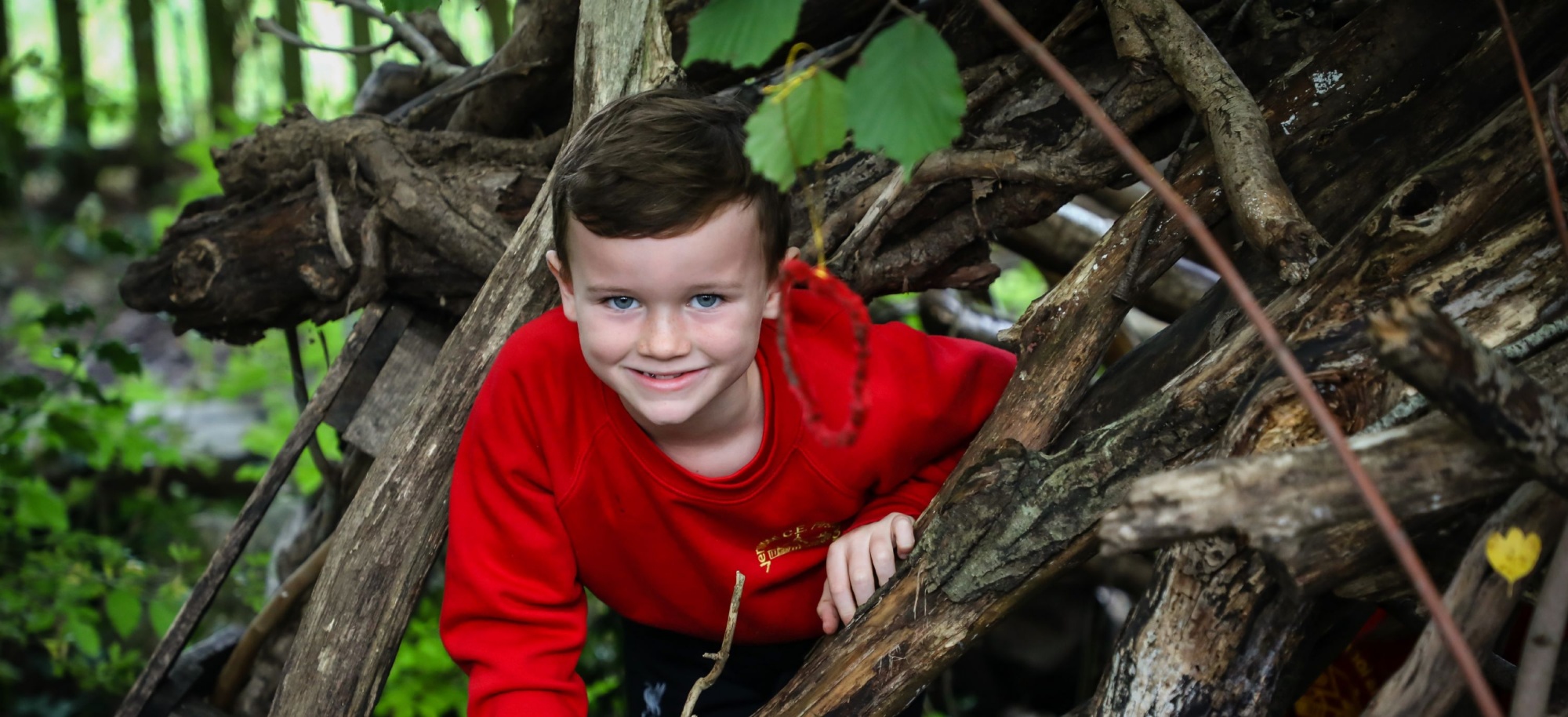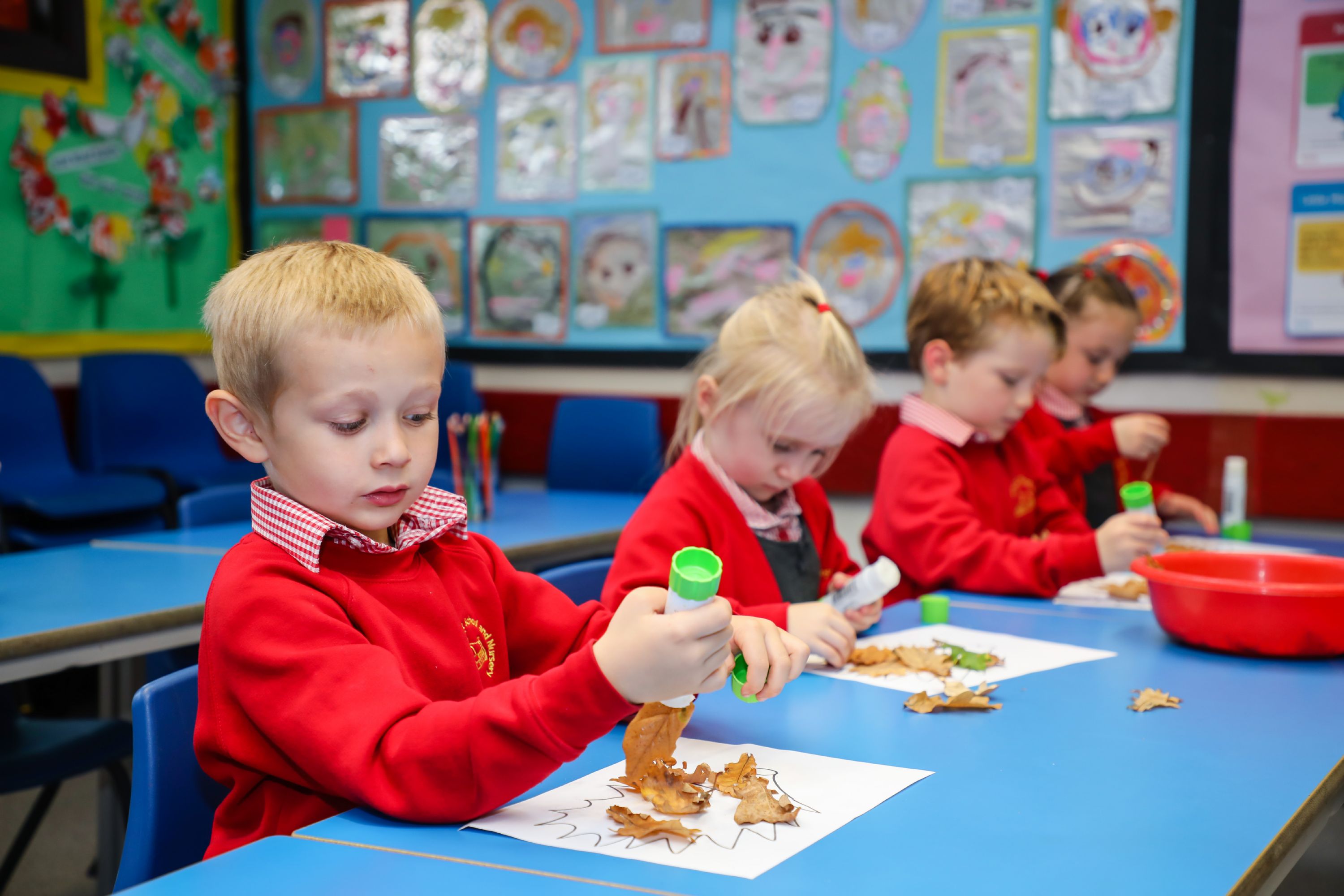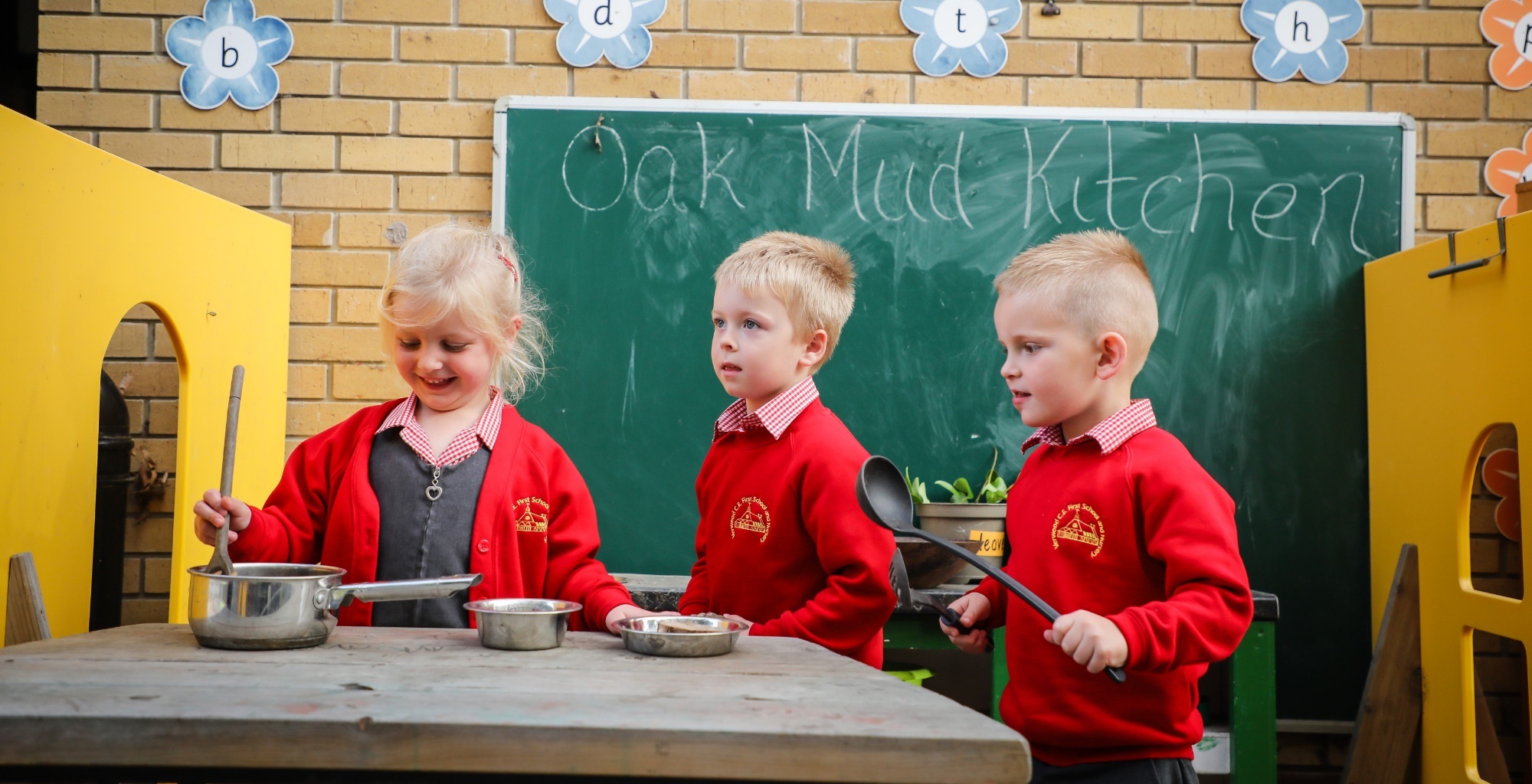Curriculum
Please note, this is an ongoing section and is currently be updated on a regular basis.
Verwood C of E First School & Nursery Curriculum Statement
Intent
Our curriculum is driven by our intention to develop aspirational, lifelong learners who are prepared for the challenges and adventures that await them. We believe that all children have an entitlement to a curriculum which they experience as a coherent whole, with smooth and well-paced progression through engaging, meaningful experiences. The school’s curriculum is planned and sequenced so that essential knowledge and skills of the curriculum build on what has been taught before, so children’s understanding of concepts develop over time. The driving force behind the delivery of our curriculum is a clear focus on delivering excellent teaching and learning that immerses children in knowledge and skills; equipping them with the personal characteristics required to succeed in future learning and beyond.
Helping every child develop as a whole person is of vital importance. Attitudes, dispositions and values underpin our curriculum; thus, ensuring our children are equipped with the personal characteristics to become motivated and committed learners. We want all of our children at Verwood C of E First School & Nursery to leave us having developed spiritually, emotionally, socially and having an awareness that they are learners and have a role to play as a learner.
We believe that a child’s spiritual development is integral to them understanding not only who they are, but more importantly, who they want to be. We nurture and celebrate the unique value and self-worth of each member of our school family. Spirituality is woven like a thread through the fabric of our school, enriching who we are. We have worked hard to develop a vision for the school that is owned and understood by all of us; ‘Learning the Values for Life’. These values include our spiritual values. The spiritual values that we hold dear and help us to lead a healthy happy life are the Fruits of the Spirit, taken from the book of Galatians in the bible. These are faithfulness, goodness, self- control, peace, love, joy, kindness, gentleness and patience.
We aim to nurture confident, independent children who are able to make responsible choices, understand and maintain positive relationships and have the ability to show empathy and compassion towards others. We believe our children need to know about and understand the world that is beyond their immediate doorstep, and it is therefore important to us that our children care not only about their role as part of a family but also their role within the community and the wider world. We provide many opportunities and experiences for our children that enable them to make connections with local and world current affairs. We engage with parents and carers to create a learning community, built upon British Values and school’s values. Throughout our curriculum, children are presented with a range of opportunities to learn, respect and appreciate the diversity of an ever-changing society.
We believe that children should be taught how to learn and that there are certain habits and attitudes they can develop which will ensure they are prepared for a lifetime of learning. We look to develop and nurture these habits through the 6Rs which are embedded in every aspect of our school culture. These can be broken down into four learning Rs, being Resilience, Reciprocity, Resourcefulness, Reflectiveness and two behaviour Rs, being Respect and Responsibility. Focusing on the 6Rs enables children to become well-rounded individuals and develop the characteristics of effective learners. Alongside this we strive to cultivate a growth mindset culture; we learn together that there are different pathways to success and that we strengthen our learning habits by overcoming barriers. Children at Verwood C of E First School & Nursery embrace challenge and understand that ‘getting stuck’ means learning is taking place and is an essential part of the learning journey to success.
Implementation
Our carefully planned curriculum balances the national expectations and a range of experiences allowing our children to flourish. Age related expectations combine the acquisition of knowledge and development of skills to create a purposeful and exciting learning journey for every child. Whilst outcomes are designed to meet the requirements of the National Curriculum, they also develop the skills needed for learning and for life, focusing on the whole child and recognising the importance of all aspects of a child’s life. Our exciting curriculum is designed so that subject specific knowledge & skills are built upon within a cross-curricular theme or context each half-term.
Our approach to teaching and learning supports our curriculum by ensuring that lessons build on prior learning and provide opportunities for guided and independent practice. The development of children’s knowledge and skills across all primary subjects is key when building on prior learning, this supports children for the next stage of their learning. Subject content is presented clearly, teachers carefully check learning and identify misconceptions, providing direct feedback.
We utilise our school grounds and local area well, to provide our children with rich learning experiences, which they are able to talk about and make links with their learning in school. Educational visits and visitors to the school are encouraged, to further inspire and motivate learners.
In addition to delivering the statutory curriculum, we are also committed to teaching and nurturing the qualities that successful learners possess. Professor Guy Claxton’s work on Building Learning Power has helped us to create a culture that cultivates the habits and attitudes of curious, confident and independent learners. Guy Claxton’s work suggests that there are four key learning dispositions – Resilience, Resourcefulness, Reflectiveness & Reciprocity. We refer to these dispositions as our four learning Rs and engage all children in a dialogue using a common language to support and develop their understanding of how they learn. In the classroom, children use the language for learning to explain ways in which they achieved or approached tasks and how they can move on to the next stage in their learning.
At Verwood C of E First School & Nursery, our curriculum is largely bespoke for our children. We utilise some published curriculum materials to support our planning – all based on the Early Years and Foundation Stage (EYFS) Curriculum and the National Curriculum (2014). All aspects comply with legislation and national guidance, including the teaching of Relationships Sex Education (RSE). The published schemes that we use, to support us in school, include:
- Unlocking Letters and Sounds (Phonics)
- Maths No Problem (Mathematics)
- Charanga (Music)
- HeartSmart (PSHE)
- Discovery RE/Understanding Christianity (R.E)
- GetSet4PE (PE)
Impact
Everything we do is with the child at mind, and strong relationships are built between children and staff which creates a safe culture and atmosphere for learning which is conducive to success.
The impact of our curriculum is measured in terms of the extent to which children have developed new knowledge, understanding and skills which they can use and recall with fluency. We teach our children to ensure we alter their long-term memories, and we define progress as knowing and remembering more. Teachers work hard to plan a broad and balanced curriculum which is delivered to ensure a child’s entire school experience enables them to develop a deep body of knowledge, which will see them through to the next stage in their learning journey. We evaluate the knowledge, skills and understanding that the pupils have gained against the expectations agreed and evaluate our teaching from this. This ensures that we are constantly striving for improvement and ensuring that our curriculum is the best it can be.
The impact of the curriculum can also be seen in our children’s strength of character; how far they demonstrate:
- emotional resilience and the ability to persevere when they meet a challenge
- the 6 Rs (Resilience, Reciprocity, Resourcefulness, Reflectiveness, Respect and Responsibility)
- independence
- physical and mental well-being
- the capacity to listen respectfully, with tolerance to the views of others
- positive, healthy relationship with their peers
- the ability to be socially and morally responsible, active members of society
Although these skills may not be assessed numerically, we strongly believe that being able to achieve these life-skills will enable children to fully access life in modern day Britain.
A judgement on the impact of the curriculum is based upon a triangulation of different monitoring and evaluation activities within school; work scrutiny, pupil voice discussions, outcomes of assessments and quality of teaching and learning are all used at tools to help senior leaders assess the impact of the curriculum.







